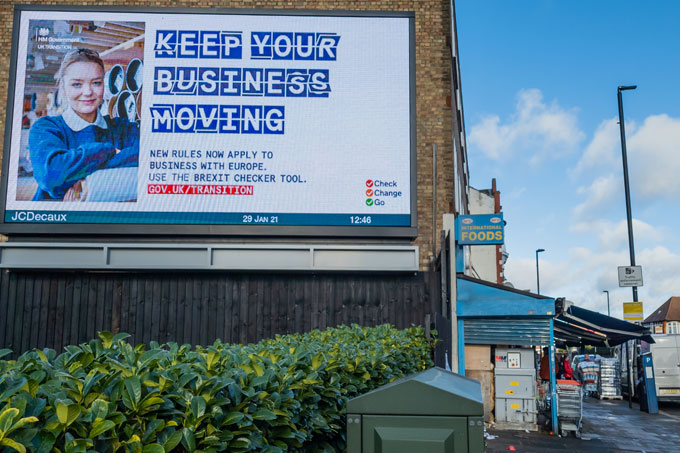Dr Anne Nortcliffe reflects on the affect of Covid-19 and Brexit has had on the UK’s economy, recognising where businesses have adapted to continue to be successful.
The resilience displayed by UK businesses has enabled many to experience growth, realised through the professional approaches that have supported rapid adjustments in business models. Willingness to adopt agile ways of working has been key to continued business operations.
Coupled with access to Covid-19 secure engineering and manufacturing facilities, these tactical changes in approach have all contributed to businesses being able to adapt to an external environment that would otherwise have been completely outside of their control.
The first lockdown in March 2020 led to the urgent need for large-scale increases in the manufacture and distribution of PPE and hand sanitiser products. Existing UK manufacturing firms were able to meet this unprecedented increase in demand by flipping their business models and repurposing their manufacturing facilities to support the NHS and care homes and is one of many positive outcomes observed within the UK.
It is also important to understand how the hygiene practices used in modern engineering facilities aided other workplace adaptations to enable them to become ‘Covid-19 Secure’.
Engineering, as an industry today, is defined through total quality management practices, lean and six sigma initiatives had already instigated hygienic sterile white and clean engineering manufacturing environments more akin to surgical theatre than what many may see as being grey, industrial-style aesthetics.
Adopting such approaches has been shown to improve the health and safety of the employees, the engineering precision and quality of the products manufactured, reduce manufacturing time through reduced volume product re-work and additional finishing activities, while also leading to an increase in revenue streams from well managed waste separation processes.
When combined, these improvements have enabled small-medium enterprises (SMEs) to adopt the same quality practices used in larger firms in an efficient way, enabling them to become approved tier suppliers to higher revenue and stricter quality controlled engineering industries including aerospace and medical.
The willingness of UK manufacturing to be agile is testament to their ability to successfully react to the needs of the external operating environments through investment into industry 4.0 technologies, such as robotic feeders for automated CNC machines, the use of full industrial AI-led automation, and similar mechanisms in support of their business-to-manufacture value chain that can now operate for near-24/7 with minimum human intervention and product rework.
Advancement of automated feeding and manufacturing equipment also has the potential with secure digital communications to support remote working practices, including the configuration and monitoring of processes related to manufacturing operations.
Within the UK many businesses therefore have successfully adapted, but there is still more to do. Freight prices have seen major increases due to the combined effects of Covid-19 and Brexit. This is impacting on the cost savings of having goods manufactured in China and India, resulting in diminishing in financial returns.
Brexit also requires European companies to register with the UK HMRC to ship goods to the UK. The ‘rules of origins’ are complicating UK Industry business operations as any goods manufactured in the UK using source materials/parts from other countries require UK enterprises to apply different duties when selling into Europe.
Reducing freight and logistics costs, industries dependence on raw materials and parts from outside the UK are now all-important considerations for many enterprises’ supply-chains. They need to be reviewed to ensure their products continue to remain profitable and re-shoring manufacturing in the UK is now being invested in to reduce the reliance on long-haul freight, and reduce impact of Brexit changes.
Zara’s business model, for example, has demonstrated success in this area as they had already previously moved production to be in-house. This enabled the fast-fashion business to rapidly respond to market data to increase stock in store of selling lines or adjust to changes in the global marketplace. Other businesses should look at their business model and supply chains to gain inspiration from their approach.
With all this said, even in such a challenging environment, opportunities are still available for a number of business sectors that can be realised through inter-industry collaboration to provide local and national solutions that yield quality improvements, time efficiencies, and environmental and fiscally advantageous outcomes for UK businesses.
The key is through the use of in-shore Industry 4.0 manufacturing solutions that can provide agility and resilience, feeding back into the economy through growth of business activity.
Read the full version of this article on CCCU Blogs
Dr Anne Nortcliffe is Head of School of Engineering, Technology and Design.
 Expert comment
Expert comment Jeanette Earl
Jeanette Earl 2733
2733


